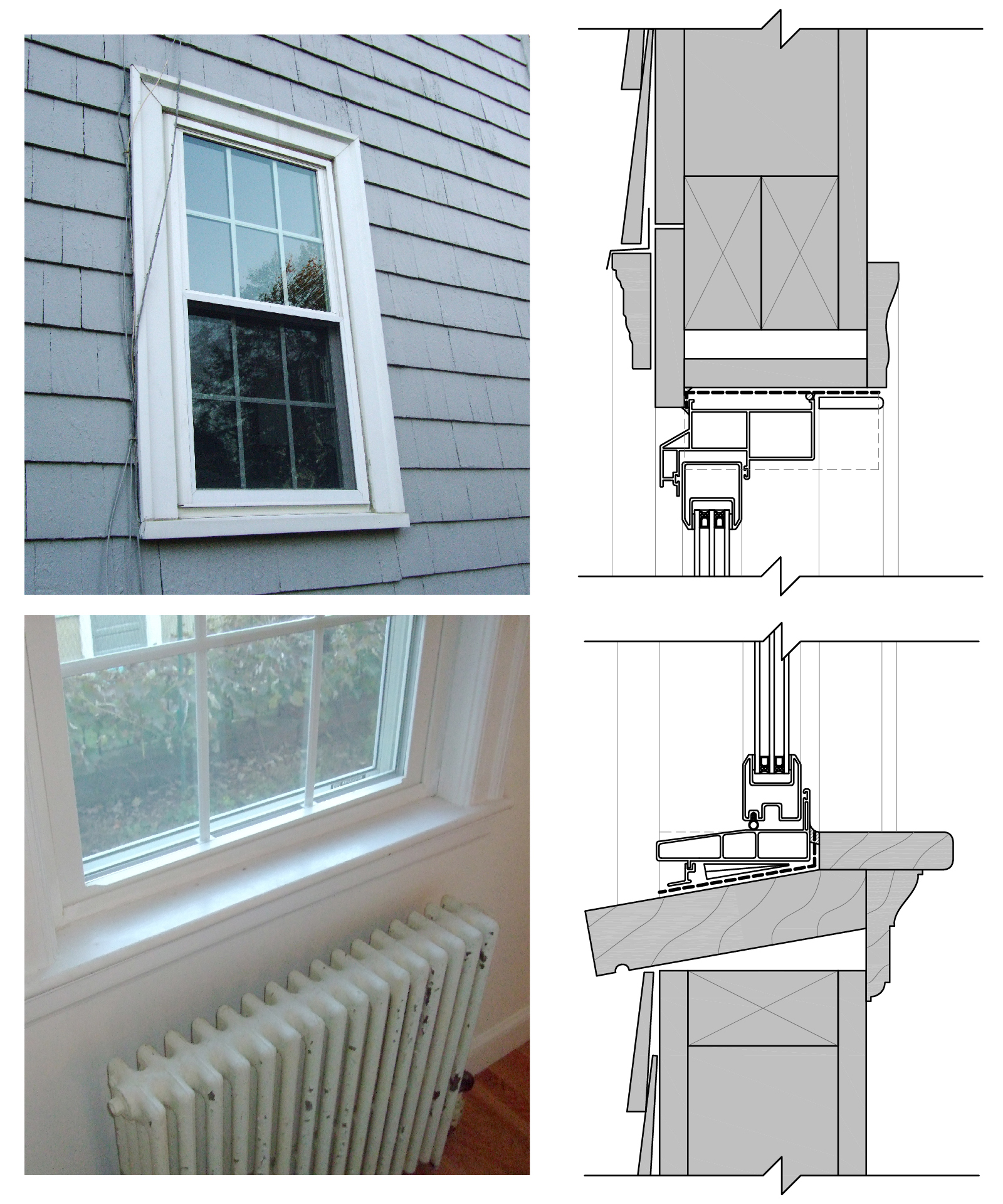Upgrade Your Home With Energy-Efficient Home Window Replacements
In the world of home improvement, the decision to update to energy-efficient window substitutes can considerably influence both the functionality and looks of a residence (window replacement). As house owners look for ways to improve the performance and sustainability of their space, the option of home windows plays a pivotal function in attaining these objectives. Beyond the surface level of plain aesthetics, energy-efficient windows use a plethora of benefits that exceed mere visual allure. With a mindful option process that considers different variables, from glass kinds to installation techniques, beginning on this home upgrade journey might verify to be a transformative undertaking.
Benefits of Energy-Efficient Windows

The setup of energy-efficient windows gives considerable savings on energy expenses while enhancing ecological sustainability. Energy-efficient home windows are created to lessen heat loss and gain, decreasing the need for heating and cooling down systems to work overtime. By effectively shielding the home, these windows aid keep a comfortable interior temperature year-round, causing lower power usage and lowered utility prices. Furthermore, energy-efficient home windows can help manage moisture degrees within the home, reducing the danger of mold and mildew and mildew development.
Past the financial advantages, energy-efficient home windows add to environmental sustainability by reducing carbon exhausts associated with energy manufacturing. By lowering energy use, these home windows help reduce the ecological influence of home heating, lights, and cooling household rooms. This reduction in energy consumption plays an important function in combating environment adjustment and advertising a greener future for generations ahead. Overall, buying energy-efficient windows not only enhances the convenience and effectiveness of a home but likewise lines up with ecologically conscious methods.
Kinds of Energy-Efficient Glass
Different sophisticated types of energy-efficient glass offer one-of-a-kind buildings that satisfy various requirements and preferences in enhancing the sustainability and performance of structures. Low-emissivity (Low-E) glass is a prominent option designed to minimize the quantity of ultraviolet and infrared light that can pass via the glass, consequently decreasing heat transfer. This type of glass aids preserve a consistent indoor temperature level, minimizing the requirement for heating or cooling down systems, and eventually lowering power expenses. Another cutting-edge choice is spectrally selective glass, which permits visible light to go through while obstructing specific types of infrared radiation. This aids in keeping a comfortable indoor setting while decreasing warm gain. Triple-pane glass, consisting of 3 layers of glass with shielding gas between them, supplies enhanced thermal insulation, making it very energy-efficient. Additionally, self-cleaning glass with an unique finishing that damages down and loosens dust when exposed to sunshine can reduce maintenance demands and maintain windows looking tidy. Each sort of energy-efficient glass go to these guys supplies distinct benefits, allowing house owners to choose one of the most ideal choice based upon their specific needs and goals.
Variables to Consider When Choosing
When pondering energy-efficient window substitutes, it is critical to very carefully assess certain factors that straighten with your sustainability objectives and wanted energy cost savings. The U-factor measures exactly how well the home window insulates, with reduced numbers indicating much better insulation, while the SHGC shows the window's capability to obstruct heat from sunshine. By carefully examining these variables, you can choose energy-efficient home windows that enhance comfort, lower energy expenses, and profit the environment.
Setup and Upkeep Tips

Regular upkeep is key to maintaining the efficiency of your energy-efficient windows. Inspect the weather-stripping and seals for any tears or spaces and replace them if required to maintain the home windows' energy performance. Houston window replacement.
On top my sources of that, lube relocating parts such as locks and hinges to make sure smooth operation. By complying with these installation and maintenance pointers, you can improve the power efficiency of your home and extend the lifespan of your energy-efficient windows.
Cost-Benefit Analysis of Updating

Energy-efficient home windows are made to reduce you could try this out warmth transfer, decreasing the need for heating and cooling down systems to function overtime. This can cause considerable savings on power expenses, especially in regions with severe temperatures. Additionally, energy-efficient home windows can improve the overall worth of your home, making it extra appealing to potential customers if you make a decision to offer in the future.
When calculating the cost-benefit evaluation, element in the potential financial savings on energy costs, any type of available motivations or refunds, and the lifespan of the home windows. While the initial price may be greater, the long-lasting savings and advantages of energy-efficient windows make them a wise investment for home owners seeking to improve their residential or commercial property's power effectiveness and worth.

Verdict
To conclude, updating to energy-efficient window substitutes provides countless benefits such as lowered energy usage, enhanced convenience, and price savings. By picking the ideal sort of energy-efficient glass and taking into consideration elements like structure material and setup, home owners can take full advantage of the performance of their windows. Routine upkeep and proper setup are crucial for long-term performance. Generally, the cost-benefit evaluation of updating to energy-efficient windows shows that the preliminary financial investment can lead to considerable cost savings over time.
When considering energy-efficient window replacements, it is crucial to carefully examine certain aspects that line up with your sustainability goals and preferred energy financial savings. The U-factor measures how well the window insulates, with lower numbers showing far better insulation, while the SHGC shows the home window's capability to block heat from sunshine. By meticulously examining these aspects, you can choose energy-efficient windows that boost convenience, minimize energy prices, and profit the atmosphere.
While energy-efficient windows might have a higher upfront price contrasted to conventional windows, the lasting advantages typically outweigh the first financial investment.In conclusion, updating to energy-efficient home window substitutes provides numerous advantages such as decreased power usage, enhanced convenience, and expense savings.